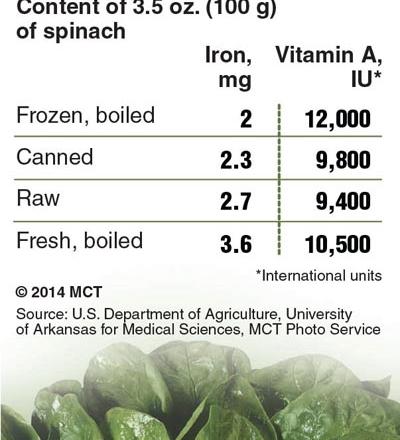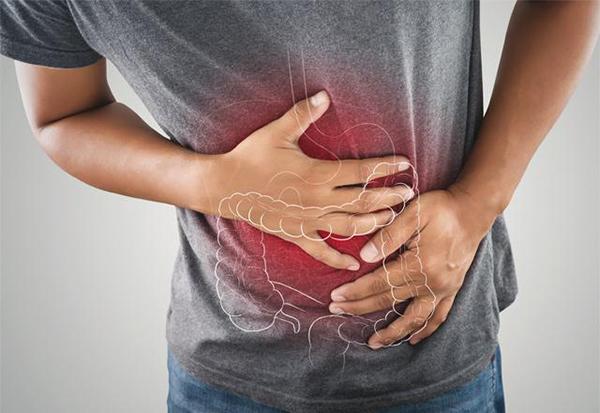You are here
Spinach extract could help prevent obesity, study shows
By AFP - Mar 11,2014 - Last updated at Mar 11,2014

STOCKHOLM – A natural compound hidden away in spinach has been shown to reduce food cravings between meals and could help prevent obesity, a Swedish scientist said on Monday.
Charlotte Erlanson-Albertsson, a professor of appetite regulation at Lund University, found the compound, known as thylakoid, while looking for ways to slow digestion and alleviate hunger pangs.
The compound functions differently to processed foods, which tend to be digested only in the upper intestine.
This prevents key hormones that make us feel full from being released to the brain, according to a statement from the university.
“I like to say our intestines are unemployed,” Erlanson-Albertsson said.
A test group of 15 people who took the compound every morning reported that it had become easier to resist the temptation to eat between meals.
Erlanson-Albertsson discovered the compound after speaking to her husband, a scientist researching photosynthesis.
He steered her in the direction of thylakoids, a compound in green leaves believed to slow down fat digestion, meaning the whole intestine has time to get involved, the university said.
But eating spinach itself is not enough. It has to be crushed, filtrated and passed through a centrifuge, freeing the thylakoids from the plant’s cells.
“Our bodies can’t break it down from fresh spinach directly,” the university said.
Related Articles
A gastric balloon that’s swallowed like a pill and then sits in the stomach filled with fluid helped patients lose more than a third of thei
An often debilitating condition, Irritable Bowel Syndrome (IBS) leads to frequent, recurrent abdominal pain and constipation or diarrhoea. There is currently no specific cure for it, so dietary and lifestyle changes are essential. In this article, I help you identify triggers and to adopt a strategy to make them less frequent and less severe.
Obesity surgery may keep diabetes in remission even after 15 years in some patients, a Swedish study suggests.


















